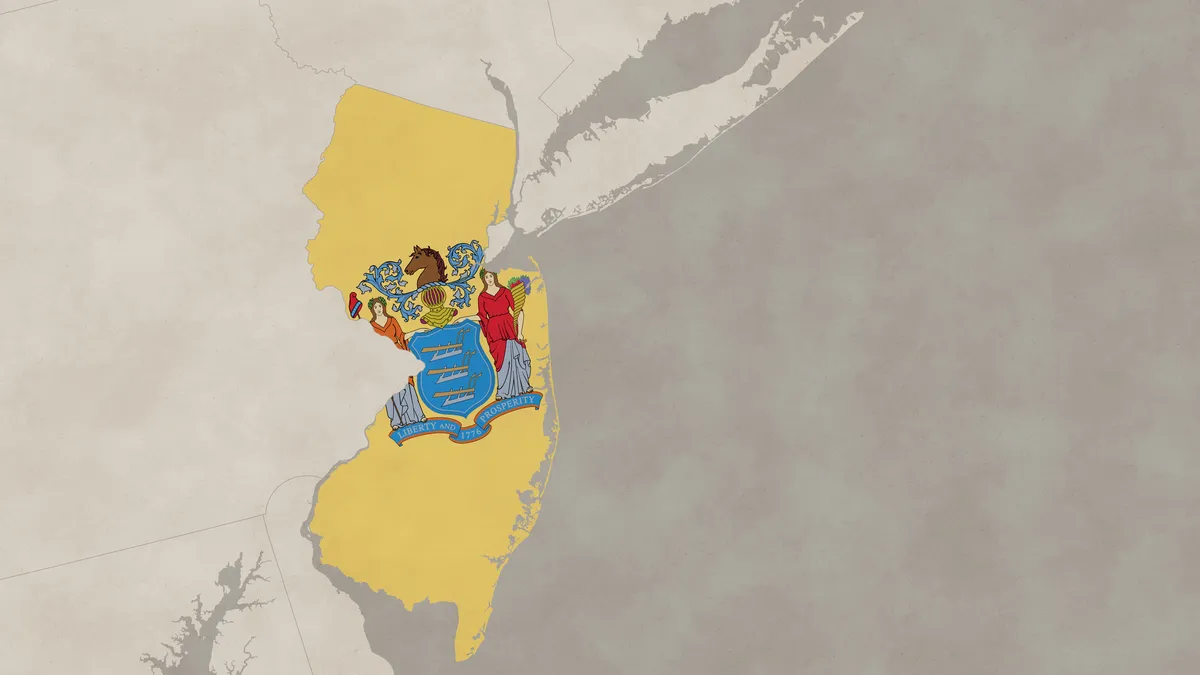Dive Brief:
- Red Bank, New Jersey-based OceanFirst Bank has agreed to pay more than $15 million to resolve allegations that, between 2018 and at least 2022, it failed to provide mortgage lending services to predominantly Black, Hispanic and Asian neighborhoods in Middlesex, Monmouth and Ocean counties, the Justice Department announced Wednesday.
- The Office of the Comptroller of the Currency flagged the bank to the DOJ in December 2022, after the regulator found OceanFirst violated the Federal Housing Act based on analysis from an October 2021 fair lending examination.
- The OCC lowered the bank’s Community Reinvestment Act rating from “satisfactory” to “needs to improve” because of “evidence of discriminatory or other illegal credit practices,” according to a Nov. 1, 2021, report. Three days later, OceanFirst proposed acquiring Salisbury, Maryland-based Partners Bancorp – a move that would have given the New Jersey lender access to the Baltimore and Washington, D.C., markets for the first time. The banks terminated the $186 million deal in November 2022.
Dive Insight:
OceanFirst disproportionately focused its outreach and advertising on majority-white communities, operated branches in majority-white neighborhoods, and closed its only locations in the majority-Black, Hispanic and Asian areas of Middlesex, Monmouth and Ocean counties, the DOJ argued in a complaint filed Wednesday in federal district court.
Under its agreement, OceanFirst must invest at least $14 million in a loan subsidy fund to increase access to mortgage, home improvement and refinancing loans for residents of majority-nonwhite neighborhoods in those counties.
The bank also must spend $700,000 on advertising, outreach, consumer financial education and credit counseling targeting predominantly Black, Hispanic and Asian neighborhoods in those counties. And it must put another $400,000 toward community partnerships to provide credit-, homeownership- and foreclosure prevention-related services for people in those areas.
“The commitments we are announcing today are consistent with our Bank’s 122-year history of providing credit and other financial services to all residents of the communities we serve,” OceanFirst CEO Christopher Maher said in a statement Wednesday. “We look forward to continuing the Bank’s efforts in the New Brunswick-Lakewood market to help meet the lending and banking needs of families, businesses, schools and organizations.”
The bank, in its release, pinned some of the faults on its 2018 purchase of Sun National Bank.
“While the acquisition … expanded the physical footprint of OceanFirst in the New Brunswick market, residential mortgage lending opportunities initially were limited due to the time needed to build the corresponding operations and volume as Sun National Bank had discontinued consumer lending several years prior to their sale,” OceanFirst wrote.
The bank added that it has made “significant commitments” since 2019 to lending and outreach efforts in majority-nonwhite areas.
The DOJ launched its investigation in February 2023 into whether OceanFirst violated the Equal Credit Opportunity Act and Fair Housing Act. The DOJ proposed a consent order, which awaits court approval, to resolve its claims against the bank. OceanFirst’s settlement also includes a conciliation agreement with the Department of Housing and Urban Development.
Under the settlement, OceanFirst agreed to open a loan production office and maintain a recently opened full-service branch in majority-nonwhite areas of the counties in focus, with at least one mortgage loan officer assigned to each location.
OceanFirst must also perform a community credit needs assessment, evaluate its fair lending compliance management systems, and train its staff on fair lending. And the bank must hire a director of community lending to oversee home mortgage lending in communities of color.
“Far too often, communities of color have been denied equal access to credit and the opportunity to build generational wealth,” Kristen Clarke, assistant attorney general in the DOJ’s Civil Rights Division, said in a statement Wednesday. “This agreement underscores the Justice Department’s commitment to holding banks and financial institutions accountable for their discriminatory actions while ensuring racial and economic justice for all Americans.”
The OceanFirst settlement marks the DOJ’s 13th since launching an anti-redlining campaign in 2021 that, so far, has collected $137 million in relief. Pittsburgh-based First National Bank of Pennsylvania agreed to pay $13.5 million in February, the most recent penalty in the campaign.
Patrick Barrett, OceanFirst’s CFO, cited regulatory delays as the reason the proposed tie-up with Partners Bank fell apart.
“Everything has just dramatically slowed down,” Barrett told American Banker in November 2022. “The environment for [mergers and acquisitions] is just more challenging.”
The downgrade of OceanFirst’s CRA rating may not have been common knowledge to Partners at the time the deal was proposed. The OCC made the CRA rating public in August 2023.
Partners Bank eventually sold to Camp Hill, Pennsylvania-based LinkBank in a deal worth roughly $167.8 million..












